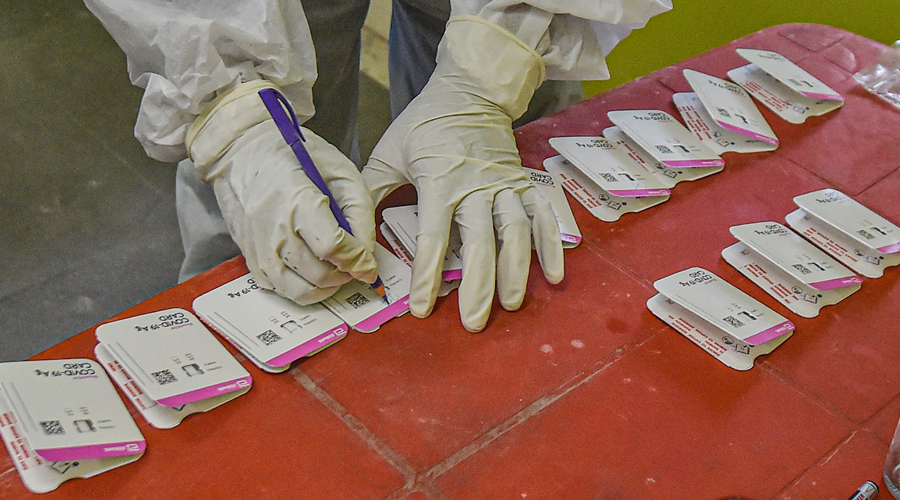The state health department has identified priority groups who are at high risk of catching Covid-19 and are also “potential spreaders” so that they are vaccinated before others.
The priority groups include retail sellers of vegetables, fish, grocery; employees of ration shops, kerosene shops, fuel pumps; lawyers, law clerks, muharrirs; sex workers and transgenders; inmates of social welfare homes and correctional homes; and newspaper vendors, among others.
Government employees who did not take the shot earlier, when they were being vaccinated as members of priority groups, will get another opportunity to get vaccinated. The state has started vaccinating hawkers, transport workers and journalists as priority groups.
An order issued on Wednesday by the state health secretary noted that “as per availability of vaccines, which is insufficient, the scarce vaccines available at the disposal of the Government of West Bengal may be divided into two streams”.
One of the two groups is the general public at large, while the other includes the priority groups. The order added that the priority groups are “groups which are super-spreaders/ public-facing/forcibly exposed to public mingling: groups which are endangered as well as potential spreaders.”
The order mentioned that the Calcutta Municipal Corporation (CMC) and the administration in other districts may assign different days of a week for the immunisation of different categories and different age groups.
Officials of the CMC said they would soon chalk out a plan on how to vaccinate the priority groups.
The state health department and the CMC have since Tuesday been vaccinating transport workers and hawkers at four locations — Sutanuti Community Hall in Shyambazar; Sarat Sadan, adjacent to Triangular Park, on Rashbehari Avenue; Islamia Hospital in central Calcutta; and Mohit Mancha in Cossipore.
“Retailers sitting in markets are among the most exposed. They have to interact with tens of hundreds of customers every day. This makes them very vulnerable. They may catch the infection from any infected person. On the other hand, infected sellers can spread the infection to many of those who come in contact with them,” said a doctor of the CMC.
“Vaccinating them will reduce the chances of infection spreading from places where people gather every day.”
Sources in the CMC said that in the absence of enough doses, giving priority to those who are at an increased risk of getting infected was one way of dealing with the vaccine shortage.
The order mentioned that the vaccination of those not included in the priority groups would be done from hospitals run by the state government.
The private hospitals, too, will start vaccinating people not belonging to any priority group on a large scale once they receive a steady supply of vaccines from the manufacturers.
An official of the CMC said they would soon work out plans on how to vaccinate the priority groups mentioned in the health department’s order. “As of now, we have four centres dedicated for vaccination of hawkers and transport workers. We may open a few more centres dedicated to other priority groups. These are people who are receiving their first dose,” said a CMC official.
Recipients from the priority groups will need to carry a proof that mentions their profession. “The retailers at a market should get a certificate from the market committee stating that they own stalls at that market,” said the CMC official.











